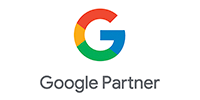It’s no secret that Bing’s underappreciated, but is the world’s second-largest (conventional) search engine still worth your time and money? Most PPC specialists would say no, and for a number of reasons, but we’d argue differently – Bing’s come a long way over the last few years, and shouldn’t be overlooked.
The most obvious (and until recently, valid) reason given by PPC strategists when arguing against Bing advertising in favour of Google is the colossal discrepancy between search volumes and quality of customer experience. However, read our four reasons to keep Bing in mind and let’s see if we can’t convince you otherwise.
Bing’s market share
In 2011, numerous sources reported that Bing somewhat embarrassingly saw less than 4% of all search traffic. However, 2018 figures indicate that Bing now controls around 20% of all UK desktop traffic, with even higher figures in the US, where Microsoft’s platform is clearly more popular – that’s growth, and it’s liable to keep growing. From experience, we’ve seen an average of 10-15% of all traffic to clients come in through Bing – not a negligible amount by any means.
The demographics using Bing
Google’s demographics are clear: under 45s dominate search volumes, which is great for certain brands and industries. However, if your audience is more mature, it’s worth bearing in mind that a significant majority of Bing users are over 45. After all, how likely is your grandmother to use a search engine that differs from the one set to ‘Homepage’ on her new Microsoft gadget? Seriously though, over 45s tend to have more disposable income and often have a good idea of what they’re searching for.
Bing and voice search development
Voice search is poised to become the next big thing as a new, tech-savvy generation becomes ever more impatient for instant gratification, and that could really mean a turning point for Bing. Its association with Microsoft’s Cortana, Apple’s Siri and Amazon Echo puts it in a really strong position: as of 2017, Amazon Echo commands an incredible 69% of traffic, compared with Google Home’s 25%, and figures estimate almost half of all searches will be conducted verbally by 2020… you do the maths.
Bing’s cheaper cost-per-click
And finally, the big one – CPC is significantly lower on Bing than on Google Adwords. Yes, this is of course owing to lower search volumes, but it still means you’re advertising to a quarter of your audience for up to 60% less than you would do on Google, and Bing’s general cost per acquisition also tends to be lower. To be fair, Google still beats Bing for the accuracy of long-tail queries, but Bing’s catching up quickly and quietly – so get in there before it gets even bigger.
If you would like to find out how Bing Ads can help you expand your search presence then contact us today.
Finally, we’d leave you with this infographic that shows Bing Network’s market share across the globe.
Did we mention Bing is bigger than you think 😊? #SEM #PPC #bingadswebcast pic.twitter.com/jeJxJGcxl5
— Bing Ads (@BingAds) 17 August 2017








